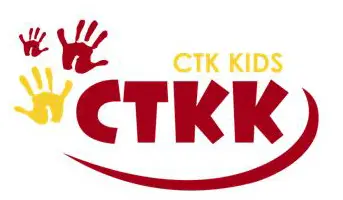
How to Recognize When a Child is Gifted
Gifted kids show amazing talent that needs to be nurtured--but they can also display unique social and behavioral issues.
Get kid-friendly activities sent to you!
Get the Best Kid-Friendly Activities
Sent to You Weekly!
Others quietly go along with their classmates so they can more easily assimilate with their peers, choosing to keep their giftedness a secret, Phillips says. They remain middle-of-the-road behaviorally—not acting out and not being the teacher’s helper—while getting perfect scores on everything and not bragging about it. These children also tend not to answer all the questions, even though they know the answer, because they do not want to draw attention from their peers.
However, once gifted children are put into a gifted program where the other students are at their level, their behavior can change. Phillips tells the story of a child who was new to a gifted and talented program. He was accustomed to being the smartest child in the room and impressing everyone around him, including the adults. When he entered the class on the first day, he stood up and said he can count to 20 in Spanish, and asked if he could recite it to the class. “I said I will be happy to listen to him when the class is over,” Phillips says. He was very quiet during the class, which Phillips says can be expected since he was now around other peers who might be more intelligent than him.
At the end of class, the student again asked if he could count in Spanish, but before he even began another child blurted out, “Well, I can count to 100 in Mandarin,” followed by another who said, “I can count to 100 in Romanian, Cantonese, and Sanskrit.”
The moral: It is important for gifted students to be around others of the same intellectual level, so they have the chance to be challenged in the classroom.
Prodigies
What if a child’s cognitive level exceeds even giftedness? These children are extremely rare and present themselves with seemingly miraculous capabilities. These kids are generally known as prodigies.
“One definition of the term prodigy is a child who has achieved an appreciable measure of adult intellectual understanding in a particular field before he or she is out of the years devoted to secondary school education,” according to the article “Prodigies of Nature” by J.S. Jenkins in the Journal of the Royal Society of Medicine.
A prodigy will become of a master of a particular field at a young age. Mozart was considered a music prodigy and was able to identify pitch correctly and quickly without external reference by the age of 7—an extraordinarily rare ability, even for adults, Jenkins writes
Stix, who also has worked closely with some prodigies, explains: “I think prodigies, the speed they integrate at is simply much faster. The links they make in terms of integrating material is higher and their productions are most complex. It is a very difficult thing to raise a prodigy because emotionally they want to be their age level but cognitively they can be light years ahead of themselves.”
Prodigies often experience a lot of loneliness because other kids cannot connect with them, Stix says. Parents raising a prodigy need to try their best to try to get their child into programs to engage with others like them, she advises.
Raising a Gifted Child
Whether someone is bright, gifted, or even a prodigy, parents need to keep in mind that every child is still an individual and parents and educators must cater to what is in the best interest of that particular person. The most important factor in helping a child is trying to keep her brain stimulated, experts say.
“When a parent finds out that his or her child is gifted,” Phillips says, “I always recommend spending as much time as possible visiting science and art museums, reading classic literature and nonfiction books, traveling to historic destinations and arranging play dates with children of similar intellectual abilities and interests. If they are getting enrichment outside the classroom, they will be more patient with the standard curriculum.” For example, she continues, “If they’re in a classroom and they are assigned a book report on Charlotte’s Web, a parent should reach out to the teacher to allow the child to select a more advanced novel after she or he has completed the assignment based on Charlotte’s Web.”
Whether it is signing the child up to be in a gifted and talented program or speaking to an educator to ensure the appropriate measures are taken within the regular school environment, it is important that giftedness is not ignored, experts agree. By enriching a child or putting him in a gifted program, a child will be given the tools to thrive.
RELATED: Discover the best local kids' activities with our weekly newsletter.









